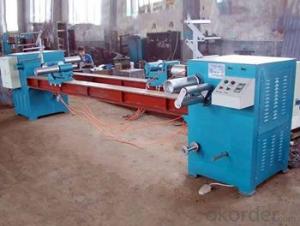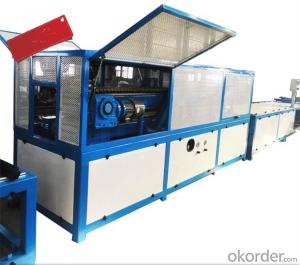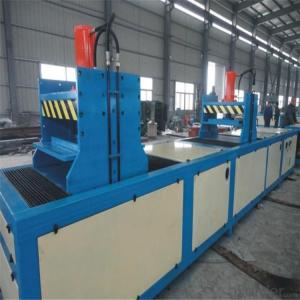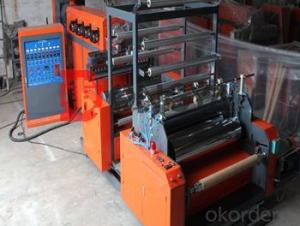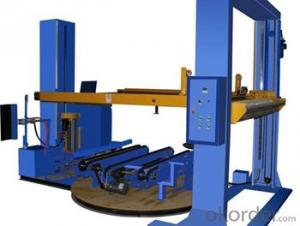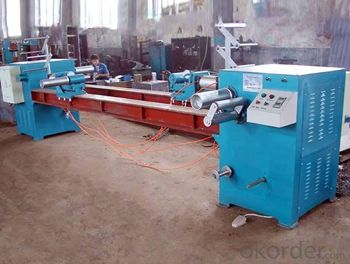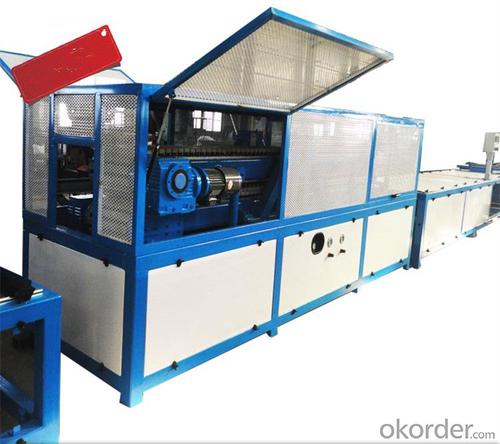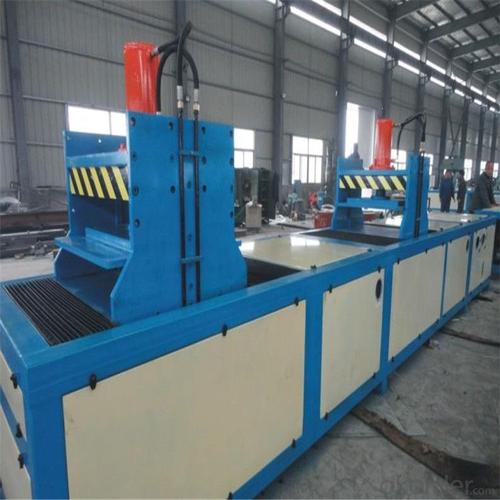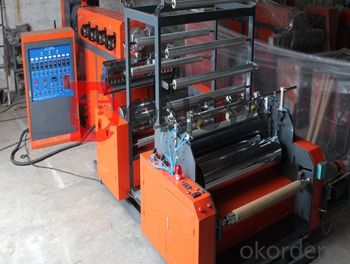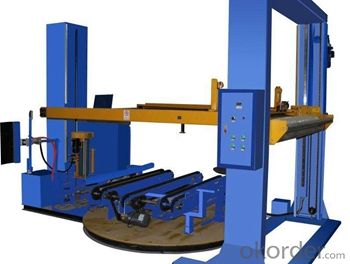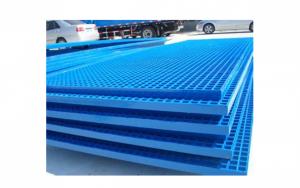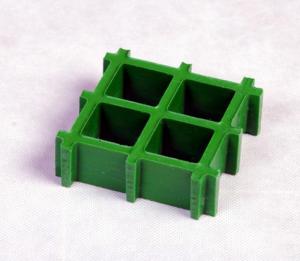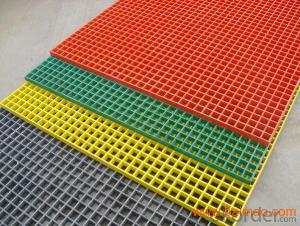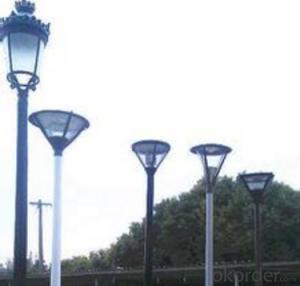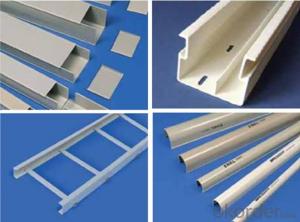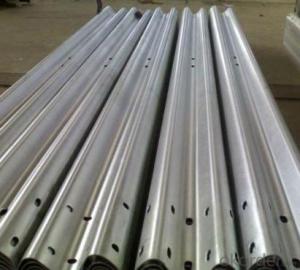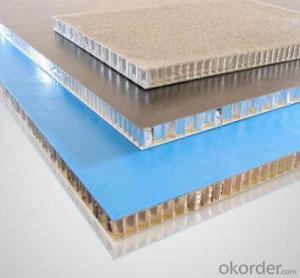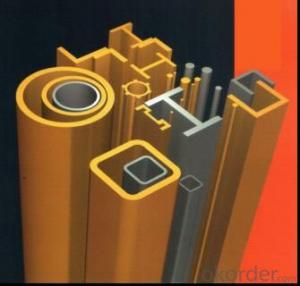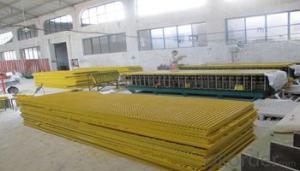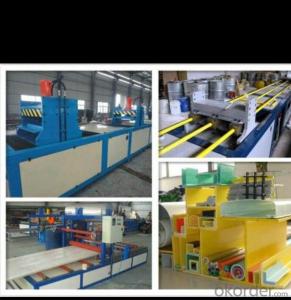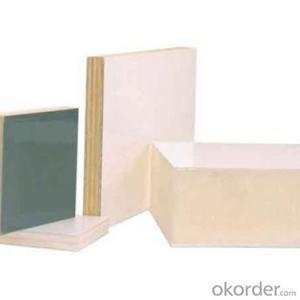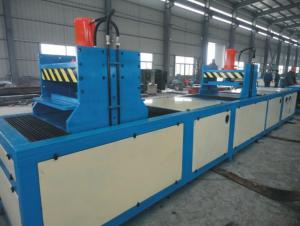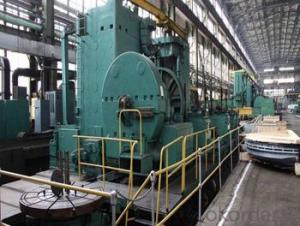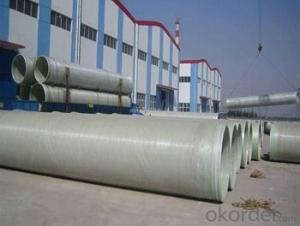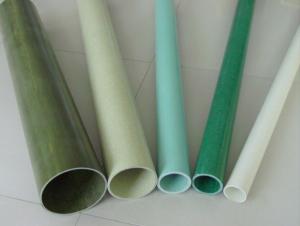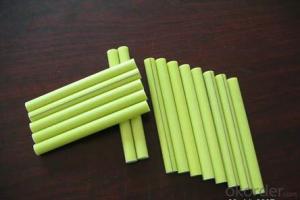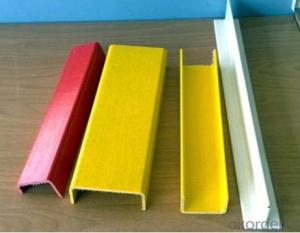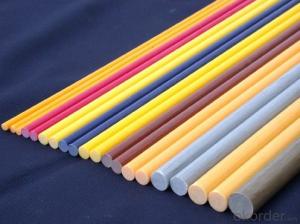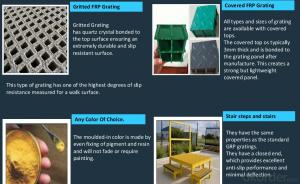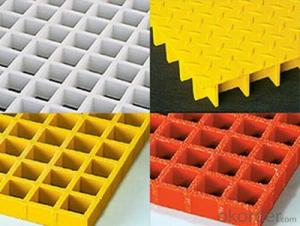FRP Pultrusion Profiles - Lightweight, High Strength, and Best Quality FRP Pultruded Grating
- Loading Port:
- Tianjin
- Payment Terms:
- TT OR LC
- Min Order Qty:
- 1 m.t.
- Supply Capability:
- 100000 m.t./month
OKorder Service Pledge
OKorder Financial Service
You Might Also Like
PRODUCT DESCRIPTION
Pultruded grating is made by a particular assembly process, which using “I” shape as its main load-bearing and special rod to go through the bearing bar. Pultruded grating include the standard grating and the custom grating, the custom grating can be designed to meet customer’s requirement or special using condition by changing the shape, size and space of the bearing bars, the surface can be covered with lozenge panel, grit panel, or added the anti-slippery sand directly.
FRP pultruded grating has the most characteristics of molded grating, but it has its distinct advantages, it has very high fiberglass content in the loading direction, so it has very high load capability, it has more superiority when used at wide span, so that the basic support will be decreased and the project cost will be reduced accordingly.
SPECIFICATION
The standard space between two crossbars is 6 inch or 12 inch.
Thickness (mm) | Bar width (mm) | Open space (mm) | Open rate (%) | Approx weight (kg/m |
25.4 | 15.2 | 22.8 | 60 | 13.2 |
25.4 | 15.2 | 15.2 | 50 | 15.9 |
25.4 | 15.2 | 10.1 | 40 | 18.5 |
25.4 | 40 | 10.8 | 21 | 14.5 |
38.1 | 15.2 | 22.8 | 60 | 15.8 |
38.1 | 15.2 | 15.2 | 50 | 19.1 |
38.1 | 15.2 | 10.1 | 40 | 22.4 |
50.8 | 25.4 | 25.4 | 50 | 16.6 |
50.8 | 25.4 | 12.7 | 33 | 21.1 |
CHOICE FOR PULTRUDED GRATING
Resin: GP resin, ISO resin, VE resin, Phenol resin
Color choice: Yellow, gray, green, custom color
Surface choice: Groove surface, grit surface, lozenge cover surface
FEATURES
a. Anti-corrosion and anti-rust
b. Light weight and high strength
c. Anti-flammable
d. Anti- fatigue
e. Safe and anti-slippery
f. Anti-ageing
FIELDS SERVED
Sewage treatment,
water supply and drainage,
chemical industry,
oil industry,
power engineering,
pulp and paper,
construction engineering,
spinning, marine engineering.
APPLICATION
Operation terrace,
stair walkway,
ground floor,
trench cover,
sidewalk.
COMPANT DESCRIPTION
CNBM,China National Building Materials Group is a state-owned enterprise in charge of administrative affairs in china building materials industry. Established in 1984, CNBM is a large group corporation of building materials with total assets of 25 billion RMB and a total staff of 30,000.CNBM now owns 200 subordinating firms of solely owned and joint-venture companies.
CNBM International Corporation is one subsidiary of CNBM, we focus on offering good-quality products,professional service and complete solution to our customers. Strong delivery capacity, advanced technology& management, strong financing capability and excellent after-sale service are our advantages in sharing international market.
FAQ
Q1.What's your sample policy?
A:We can supply the sample if we have ready parts in stock, but the customers have to pay the courier cost.
Q2.Can you produce according to the samples?
A: Yes, we can produce or modify the products according to your request.
Q3.How do you deliver the goods to my country?
A:We can provide international express, such as DHL, EMS, UPS, FedEx, etc. We select air freight and sea freight upon your requests. Quotations if without mentioning the shipping costs are shipping fee excluded.
Q4.How much does it cost to ship to my country?
A:When you goanna to place an order, please contact us, because different country has different freight.
Q5.How to get the catalogue?
A:please contact us and tell us what you are looking for.
We will try our best to meet customers' demands. Welcome you come here to visit us. We sincerely welcome partners around the world to establish business cooperation with us on the basis of mutual trust, benefit and development.
PICTURES
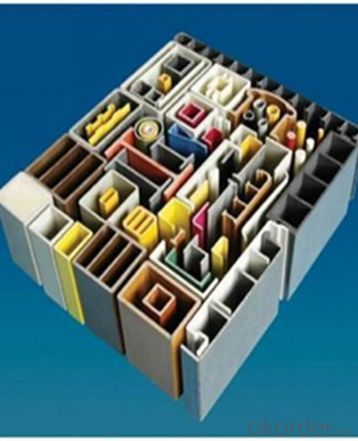
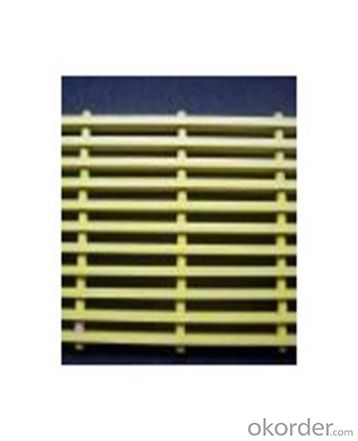
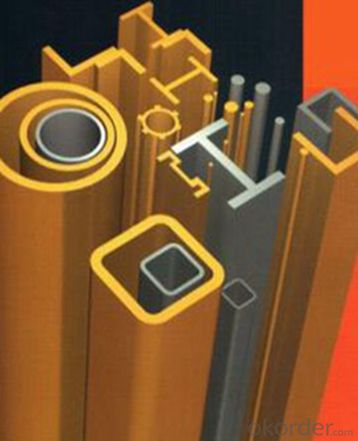
- Q: Can FRP pultrusion profiles be used in the water treatment industry?
- Yes, FRP pultrusion profiles can be used in the water treatment industry. FRP (Fiber Reinforced Polymer) pultrusion profiles are known for their excellent corrosion resistance, high strength, and durability. These properties make them suitable for various applications in the water treatment industry. FRP pultrusion profiles can be used in the construction of water treatment tanks, pipes, and other infrastructure. They are resistant to chemicals, including the harsh chemicals often used in water treatment processes. This corrosion resistance ensures a longer lifespan for the equipment and reduces maintenance costs. Additionally, FRP pultrusion profiles have a high strength-to-weight ratio, making them ideal for applications that require lightweight yet strong materials. This allows for easier installation and transportation of water treatment equipment. Furthermore, FRP pultrusion profiles offer design flexibility. They can be manufactured in various shapes and sizes to meet specific project requirements. This allows for customization and optimization of water treatment systems, ensuring efficient and effective water treatment processes. Overall, FRP pultrusion profiles are a reliable and cost-effective choice for the water treatment industry. They provide excellent corrosion resistance, high strength, and design flexibility, making them suitable for various applications in water treatment systems.
- Q: Are FRP pultrusion profiles resistant to chemical spills or leaks?
- Yes, FRP (Fiber Reinforced Polymer) pultrusion profiles are highly resistant to chemical spills or leaks. The combination of the fiberglass reinforcement and the polymer matrix used in FRP pultrusion provides excellent resistance to a wide range of chemicals, acids, and corrosive substances. This makes FRP pultrusion profiles a suitable choice for applications where chemical resistance is crucial, such as in chemical processing plants, wastewater treatment facilities, and storage tanks.
- Q: How do FRP pultrusion profiles handle cyclic torsion loads?
- FRP pultrusion profiles are designed to handle cyclic torsion loads effectively due to their inherent properties. The continuous fibers in the profiles provide high strength and stiffness, enabling them to withstand repeated twisting without deformation or failure. Additionally, the resin matrix used in the pultrusion process offers excellent fatigue resistance, ensuring long-term durability and performance under cyclic torsion loads.
- Q: Are FRP pultrusion profiles resistant to fungal growth?
- FRP pultrusion profiles are generally resistant to fungal growth. The composite materials, like resins and fibers, used in pultrusion possess inherent resistance to biological degradation, including attacks from fungi. The non-porous nature of FRP pultrusion profiles also poses difficulties for fungi to penetrate and grow on the surface. Furthermore, the manufacturing process involves curing the composite materials at high temperatures, which adds to their resistance against fungal growth. However, it is important to acknowledge that no material is entirely impervious to fungal growth in all conditions. Factors such as high humidity, prolonged exposure to moisture, and inadequate maintenance practices can still contribute to fungal growth on FRP pultrusion profiles, albeit to a lesser extent compared to materials like wood or metal. Regular inspection and appropriate cleaning are crucial to sustain the fungal resistance of FRP pultrusion profiles throughout their lifespan.
- Q: What are the main uses of pultruded glass fiber reinforced plastic extrusions?
- Road transportation shopping malls, the successful use of: highway barrier fence on both sides, road signs, pedestrian overpass, noise barrier, refrigerated vehicle components.
- Q: Can FRP pultrusion profiles be used in wastewater or sewage treatment plants?
- FRP pultrusion profiles are applicable for use in wastewater or sewage treatment plants. These materials possess exceptional resistance against corrosion, making them an ideal option for environments that frequently encounter chemicals, moisture, and harsh conditions, such as wastewater treatment plants. Compared to conventional materials like steel or concrete, FRP pultrusion profiles offer numerous advantages. They are lightweight, yet incredibly sturdy and long-lasting, facilitating easy installation while maintaining resistance against damage or degradation over time. Additionally, FRP profiles possess non-conductive properties and display good thermal insulation, which can prove advantageous in specific applications within wastewater treatment plants. Moreover, FRP materials exhibit immunity to corrosion and rust, even when exposed to aggressive chemicals and gases commonly present in wastewater or sewage treatment plants. This corrosion resistance significantly prolongs the lifespan of FRP pultrusion profiles, thereby reducing the necessity for frequent maintenance and replacement. To summarize, owing to their corrosion resistance, durability, and other favorable properties, FRP pultrusion profiles are an appropriate choice for a variety of applications in wastewater or sewage treatment plants, including walkways, platforms, handrails, grating, and structural supports.
- Q: Can FRP pultrusion profiles be used in the automotive manufacturing industry?
- Certainly! Fiber Reinforced Polymer (FRP) pultrusion profiles have the potential to be utilized within the automotive manufacturing sector. These profiles possess a number of advantages that render them appropriate for automotive applications. To begin with, one of the key benefits of FRP profiles is their lightweight nature, which aids in reducing the overall weight of vehicles. This is of utmost importance in enhancing fuel efficiency and decreasing emissions. Moreover, the reduced weight of FRP profiles enables improved handling and enhanced performance. Additionally, FRP profiles exhibit exceptional mechanical properties, including high strength and stiffness. These properties make them well-suited for integration into structural components of vehicles, such as chassis, body panels, and frames. FRP profiles are able to withstand heavy loads and offer excellent impact resistance, thereby ensuring the safety of both the vehicle and its occupants. Furthermore, FRP profiles possess outstanding corrosion resistance, a quality that is particularly advantageous in automotive applications. In contrast to traditional materials like steel, FRP profiles are impervious to rust and corrosion. Consequently, they are ideally suited for deployment in various automotive environments, including those that involve exposure to moisture, chemicals, and salt. Moreover, FRP pultrusion profiles can be customized to meet specific design requirements, thereby affording flexibility in the manufacturing process. They can be produced in a range of shapes and sizes, which allows for the design of intricate components. This design flexibility also permits customization and optimization of vehicle performance. Lastly, FRP profiles possess excellent thermal and electrical insulation properties. This renders them appropriate for applications where minimizing electrical conductivity or providing thermal insulation is necessary. On the whole, the combination of the lightweight nature, high strength, corrosion resistance, design flexibility, and insulation properties of FRP pultrusion profiles positions them as an ideal choice for deployment within the automotive manufacturing industry. Their usage can contribute to the development of more efficient, safe, and durable vehicles.
- Q: Can FRP pultrusion profiles be used in the construction of theme park rides?
- Yes, FRP (Fiber Reinforced Polymer) pultrusion profiles can be used in the construction of theme park rides. FRP pultrusion profiles offer several advantages that make them suitable for this application. Firstly, FRP pultrusion profiles are lightweight yet strong, making them ideal for constructing ride structures that need to withstand dynamic loads and forces. Their high strength-to-weight ratio allows for the creation of large, complex structures that can support the weight of riders and withstand the forces generated during operation. Additionally, FRP pultrusion profiles are corrosion-resistant, which is crucial for theme park rides that are often exposed to outdoor environments, including moisture, chemicals, and UV radiation. This corrosion resistance ensures that the ride structures remain durable and safe over their lifespan, reducing the need for costly maintenance and repairs. Another advantage of FRP pultrusion profiles is their design flexibility. They can be easily molded into various shapes and sizes to meet the specific requirements of theme park ride designs. This versatility allows for the creation of unique and visually appealing ride structures that enhance the overall experience for park visitors. Furthermore, FRP pultrusion profiles offer excellent electrical insulation properties, which can be essential for rides that involve electrical components or systems. This insulation helps to minimize the risk of electrical hazards and ensures the safety of riders and operators. In conclusion, FRP pultrusion profiles are well-suited for the construction of theme park rides due to their lightweight, high strength, corrosion resistance, design flexibility, and electrical insulation properties. These profiles can contribute to the development of safe, durable, and visually appealing ride structures that enhance the enjoyment and excitement of theme park visitors.
- Q: Can FRP pultrusion profiles be used for structural applications?
- Yes, FRP (Fiber Reinforced Polymer) pultrusion profiles can definitely be used for structural applications. Pultrusion is a manufacturing process that creates continuous, reinforced profiles by pulling fiber reinforcements through a resin bath and then through a heated die to cure the resin. This process results in strong, lightweight, and corrosion-resistant profiles that have excellent mechanical properties. FRP pultrusion profiles are widely used in various structural applications due to their high strength-to-weight ratio. These profiles can be engineered to have specific load-bearing capacities, stiffness, and durability, making them suitable for a range of structural requirements. Some common structural applications for FRP pultrusion profiles include bridges, walkways, platforms, handrails, supports, beams, columns, and reinforcements in concrete structures. They are also used in applications where traditional materials like steel or wood are not suitable due to corrosion, electrical conductivity, or weight concerns. FRP pultrusion profiles offer several advantages over traditional materials. They are lightweight, which makes them easier to handle and transport. Additionally, they are resistant to corrosion, chemicals, and UV radiation, providing long-term durability even in harsh environments. Moreover, they have excellent dimensional stability, meaning they do not warp, twist, or shrink over time. In conclusion, FRP pultrusion profiles are highly suitable for structural applications due to their strength, lightweight nature, corrosion resistance, and durability. They offer a cost-effective alternative to traditional materials while providing superior performance in various structural projects.
- Q: Are FRP pultrusion profiles resistant to impact from flying debris?
- FRP (Fiber Reinforced Polymer) pultrusion profiles are known for their high strength and durability. They are generally resistant to impact from flying debris due to their inherent properties. The combination of the reinforcing fibers, typically made of fiberglass, and the polymer matrix provides excellent impact resistance. The specific resistance to impact from flying debris can vary depending on the specific design, thickness, and composition of the FRP pultrusion profiles. However, in most cases, these profiles are designed to withstand impact forces and can effectively resist damage caused by flying debris. Furthermore, FRP pultrusion profiles are often used in applications where impact resistance is crucial, such as in construction, transportation, and infrastructure industries. These profiles have been tested and proven to withstand various impact scenarios, making them a reliable choice for applications where flying debris is a concern. It is important to note that while FRP pultrusion profiles offer good impact resistance, the severity of the impact and the velocity of the flying debris can still affect the level of damage. Therefore, it is advisable to consult with the manufacturer or engineer to ensure the specific FRP profile chosen is suitable for the intended application and potential impact conditions.
Send your message to us
FRP Pultrusion Profiles - Lightweight, High Strength, and Best Quality FRP Pultruded Grating
- Loading Port:
- Tianjin
- Payment Terms:
- TT OR LC
- Min Order Qty:
- 1 m.t.
- Supply Capability:
- 100000 m.t./month
OKorder Service Pledge
OKorder Financial Service
Similar products
Hot products
Hot Searches
Related keywords
